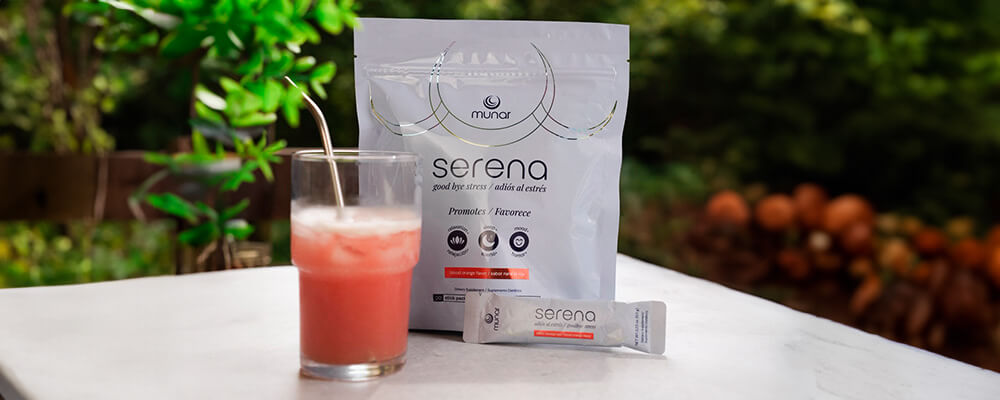Swollen face due to stress: how to deal with this uncomfortable and unsightly symptom

Do you no longer like looking at yourself in the mirror because your face is swollen from stress? Has hiding from photos because of the swelling on your face become a habit?
I know how frustrating and exhausting it is to feel like stress is taking over even your reflection. That round, swollen face doesn't define you, but it is sending you a signal.
It's time to say goodbye to facial puffiness and regain your confidence.
Why does stress make your face swell?
Among the consequences of chronic stress on women's health is facial swelling, also known as facial edema, and it is one of the ways in which your body reflects emotional and physical overload.
A stressed woman’s body is in a constant state of “fight or flight,” leading to a buildup of cortisol which, in turn, causes your body to retain more water.
That retention is your body's way of trying to protect itself, but it often results in uncomfortable symptoms like facial swelling.
Factors that worsen swollen face due to stress
In addition to increased cortisol, chronic stress affects the face in other ways that worsen puffiness:
- Lack of restful sleep : prevents the body from performing its detoxification functions properly.
- Bad eating habits : such as eating foods rich in sodium (table salt, dairy products), which promote fluid retention.
- Emotional exhaustion: affects both the facial muscles and the lymphatic system, responsible for draining fluids from the face.
- Difficulty detoxing: When the body's basic functions are disrupted by stress, the way the body eliminates toxins is also disrupted. The lymphatic system slows down, resulting in symptoms such as a swollen face.
How to reduce facial swelling when you are stressed
Although dealing with daily stress seems inevitable, there are effective ways to reduce facial swelling and alleviate some of its symptoms:
- Prioritize rest . Sleeping between 7 and 9 hours a night allows the body to regenerate and balance hormonal levels.
- Choose foods low in sodium . Opt for foods rich in potassium such as bananas or avocados, which can also balance fluid levels.
- Herbs: dandelion, ginger, parsley, licorice root, horsetail, juniper, hibiscus and hawthorn.
- Do gentle exercises such as yoga or walks in the fresh air. They help activate the lymphatic system, eliminating excess fluids in the body and reducing swelling.
- Jump when you wake up: it's fun and stimulates circulation, activates the lymphatic system, and helps get rid of a swollen face. If you have a trampoline, even better.
- Practice relaxation techniques . Spending at least 10 minutes a day on these practices can significantly reduce your cortisol levels in the body, helping to improve both physical and emotional well-being.
Facial swelling due to stress is an annoying symptom that, although it does not put your health at risk, can affect your self-esteem and general well-being.
Taking time to care for yourself is essential to balancing both your body and mind, especially when the pressures of everyday life feel overwhelming.
Important: This content is for educational purposes only and should not be used as medical advice. If you have any health conditions, please consult your doctor.Sources
- Edema: Symptoms, Causes, and Natural Treatment Strategies
- 10 effects of stress on the face and how to reduce anxiety
- Weaver, Libby. *Rushing Woman's Syndrome*. Little Green Frog Publishing, 2015, pp. 3436.
- Lynch, Ben. *Dirty Genes*. HarperOne, 2018, pp. 9293.
- Pelz, Mindy. *The Menopause Reset*. Hay House, Inc., 2020, pp. 115117.





Comments